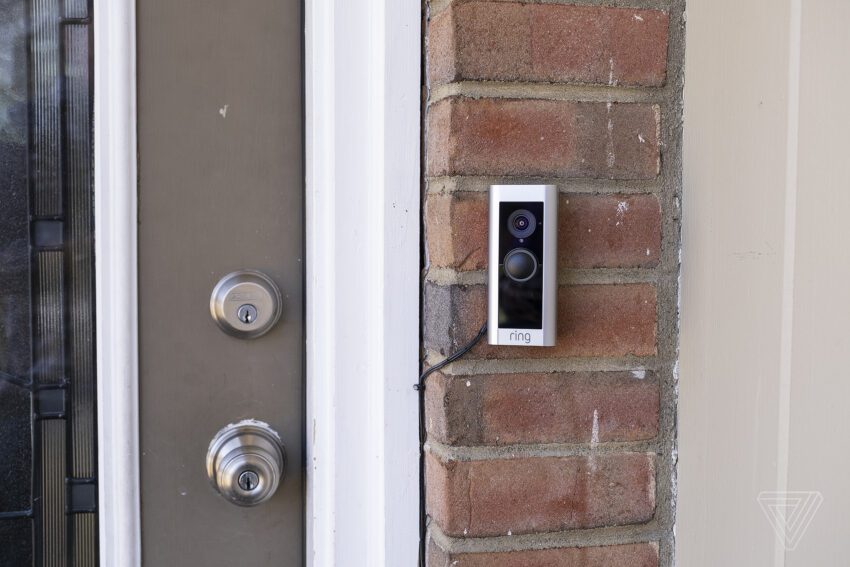
amazon s ring now works with video Amazon’s Ring has announced a new partnership with the AI-powered surveillance camera company Flock, enabling local law enforcement agencies to request video footage from Ring users.
amazon s ring now works with video
Overview of the Partnership
Ring, known for its smart doorbells and home security cameras, is expanding its collaboration with law enforcement through a new initiative involving Flock. This partnership allows local U.S. law enforcement agencies that utilize Flock’s platforms—Nova or FlockOS—to request video footage from Ring users via the Neighbors app. This development marks a significant step in Ring’s ongoing efforts to integrate its services with law enforcement agencies, a move that has drawn both support and criticism from various stakeholders.
Details of the Community Request Program
The partnership operates through Ring’s Community Request program, which was designed to facilitate communication between law enforcement and community members. According to the announcement, when law enforcement agencies wish to request footage, they must provide specific details about an alleged crime, including the time and location of the incident. Additionally, they are required to include a “unique investigation code” in their request.
Once a request is submitted, it will appear in the Neighbors app feed for all users in the relevant areas. This feature aims to encourage community engagement and assist law enforcement in their investigations. However, the implementation of this program raises questions about privacy and the implications of increased surveillance in neighborhoods.
Optional Participation and User Control
Ring emphasizes that participation in the Community Request program is entirely optional for users. They can choose to turn off notifications for these requests, thereby maintaining a level of control over their privacy. Furthermore, Ring assures users that law enforcement agencies will not have access to information regarding who responds to requests or who declines to participate. This approach aims to alleviate concerns about potential pressure on users to comply with law enforcement requests.
Historical Context of Ring and Law Enforcement Collaboration
For several years, Ring has been under scrutiny for its collaborations with law enforcement agencies. Reports have indicated that the company has provided data to law enforcement without a warrant, raising significant privacy concerns among civil rights advocates and privacy experts. In 2024, Ring discontinued its Request for Assistance feature in the Neighbors app, which allowed law enforcement to solicit video footage directly from users. However, the company maintained the option for warrantless data sharing during what it deems “emergencies,” a policy that has been similarly adopted by other tech companies, including Google with its Nest data.
Flock’s Role and Controversies
Flock, the surveillance camera company partnering with Ring, has also faced scrutiny regarding its data-sharing practices. A letter from Senator Ron Wyden highlighted that Flock had previously allowed data access to various government agencies, including the Secret Service, the Navy, and Immigration and Customs Enforcement (ICE). This revelation has raised alarms about the potential misuse of data collected through surveillance technologies and the implications for civil liberties.
Flock’s technology is designed to enhance public safety through advanced surveillance capabilities, but the partnership with Ring could lead to increased surveillance in communities, sparking debates about the balance between safety and privacy. Critics argue that such collaborations could lead to a surveillance state, where citizens are constantly monitored and their data is accessible to law enforcement without sufficient oversight.
Community Reactions
The announcement of the partnership has elicited mixed reactions from the public and advocacy groups. Supporters argue that the collaboration can enhance community safety by providing law enforcement with valuable resources to solve crimes more effectively. They believe that the ability to access video footage can lead to quicker resolutions of criminal activities and contribute to a safer environment.
Conversely, privacy advocates express concerns about the implications of such partnerships. They argue that the potential for misuse of data is significant, especially when law enforcement agencies can access footage without a warrant. The fear is that this could lead to increased surveillance of marginalized communities and the erosion of civil liberties. The debate centers around the question of how to balance public safety with individual privacy rights.
Implications for the Future of Surveillance Technology
The partnership between Ring and Flock represents a broader trend in the integration of surveillance technology with law enforcement practices. As technology continues to evolve, the capabilities of surveillance systems are becoming increasingly sophisticated, raising ethical questions about their use. The implications of this partnership extend beyond the immediate concerns of privacy and data access; they also touch on the future of community policing and the role of technology in law enforcement.
As communities grapple with the challenges of crime and safety, the reliance on technology to address these issues is likely to grow. However, it is crucial for stakeholders, including tech companies, law enforcement, and community members, to engage in open dialogues about the ethical use of surveillance technology. Establishing clear guidelines and oversight mechanisms will be essential to ensure that the benefits of such technologies do not come at the expense of individual rights.
Regulatory Considerations
With the increasing integration of surveillance technologies into everyday life, regulatory frameworks will need to evolve to address the challenges posed by these advancements. Policymakers must consider the implications of partnerships like that of Ring and Flock, particularly regarding data privacy and civil liberties. Establishing clear regulations governing the use of surveillance technology can help mitigate the risks associated with its misuse.
Legislation may need to focus on several key areas, including:
- Data Access and Sharing: Establishing clear guidelines on how data can be accessed and shared between tech companies and law enforcement agencies.
- Transparency: Requiring companies to disclose their data-sharing practices and the extent to which they collaborate with law enforcement.
- Oversight: Implementing oversight mechanisms to ensure that data is used responsibly and that individuals’ rights are protected.
Conclusion
The partnership between Amazon’s Ring and Flock marks a significant development in the intersection of technology and law enforcement. While the potential benefits of enhanced community safety are evident, the implications for privacy and civil liberties cannot be overlooked. As technology continues to advance, it is imperative for all stakeholders to engage in meaningful conversations about the ethical use of surveillance systems and to establish robust regulatory frameworks that protect individual rights while addressing public safety concerns.
Source: Original report
Was this helpful?
Last Modified: October 18, 2025 at 12:36 am
0 views















